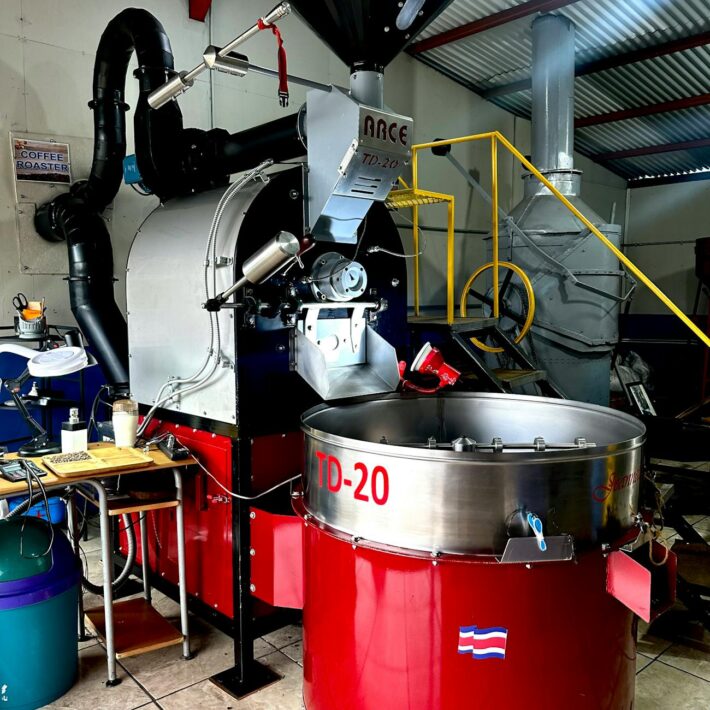Simulation Business Ideas to Start in 2024

Contents
Simulation Business Ideas to Start in 2024
Many industries are embracing simulation technologies as they seek innovative ways to enhance training, planning, and decision-making processes. In 2024, the demand for simulation-based businesses is set to grow, providing exciting opportunities for entrepreneurs. Whether it’s in education, healthcare, or entertainment, simulations can replicate real-world experiences, making them invaluable tools. Let’s explore some compelling simulation business ideas that you can start this year.
Types of Simulation Business Ideas
Here are various simulation-based business ideas to consider as you plan to step into this dynamic sector in 2024.
Virtual Reality Training Programs
 Creating virtual reality (VR) training modules can target various industries like healthcare, aviation, or manufacturing. From surgical simulations to flight training, VR can help create practical experiences without real-world risks. Potential clients can include hospitals, flight schools, and corporate training programs.
Creating virtual reality (VR) training modules can target various industries like healthcare, aviation, or manufacturing. From surgical simulations to flight training, VR can help create practical experiences without real-world risks. Potential clients can include hospitals, flight schools, and corporate training programs.
Photo by Canva Studio
Simulated Sports Coaching
Developing platforms that simulate various game situations provides athletes with the ability to practice strategies. Coaches and players can use simulated environments to analyze performance metrics in real-time, making it easier to refine skills.
Simulation Games for Education
Educational games grounded in simulations afford students an engaging way to learn. By modeling real-world scenarios, learners can hone their problem-solving skills in a risk-free environment. Ideas include history-driven simulations or interactive science experiments.
Digital Twin Services
Offering digital twin solutions helps businesses optimize their processes. This technology involves creating virtual replicas of physical systems and can be applied to manufacturing, smart cities, and logistics to predict performances under various conditions.
3D Environmental Simulations
Developing interactive simulations can aid in urban planning or disaster management. These tools enable governments and organizations to visualize infrastructure projects and prepare for environmental crises effectively.
Augmented Reality Experiences
With AR, businesses can create experiences that enhance real-world interactions. For example, AR can breathe life into museum exhibits, making them more engaging. Additionally, it works great in real estate for virtual home tours.
Healthcare Simulation Centers
Establishing simulation centers focused on medical training helps bridge gaps in practical experience. Healthcare professionals can practice emergency skills or complicated procedures in a controlled, simulated environment.
Flight Simulators for Pilots
Flying involves significant training, and a flight simulator business makes it easier for aspiring pilots to learn without the risks of flying an actual plane. You could offer training modules that cover various aircraft types or conditions.
Financial Market Simulations
Creating simulations for stock trading allows individuals to practice without using real money. This option can attract aspiring traders wanting to learn how to navigate financial markets without the financial risks.
Crisis Management Simulations
These simulations help companies prepare for potential crises by walking them through various "what if" scenarios. Instead of waiting for a disaster, organizations can have explicit strategies in place for swift recoveries.
Customizable VR Escape Rooms
The virtual escape room trend is booming. Designing VR escape room experiences engages groups in a fun format that enhances team-building and problem-solving skills. Options could be tailored for various themes and difficulties.
Robotics and Automation Simulations
With automation on the rise across various industries, creating simulations for companies to test automated processes can be a robust option. They can recognize flaws and evaluate efficiency before real-world implementation.
Remote Team Collaboration Simulations
In light of the growing remote work culture, simulate team collaboration activities. Tools can enhance engagement and effectiveness, offering a virtual platform for decision-making and brainstorming sessions.
Advertising and Marketing Simulations
Simulating consumer response based on various advertising strategies provides valuable insights. Businesses can test product launches and marketing campaigns using simulations to predict successful outcomes.
Real Estate Virtual Tours
Develop VR tours for real estate agents to showcase properties without needing in-person visits. This innovation can attract serious buyers by offering an immersive experience from the comfort of their homes.
How to Start a Simulation Business
Starting any business requires careful planning and execution. Follow these steps to launch a delightful simulation venture in 2024.
Conduct Market Research
Understanding your target audience and industry demand is crucial. Gauge market size, competitor offerings, and consumer interests to tailor your simulation services significantly.
Determine Your Niche
Figuring out your specific area in simulations, one that aligns with your skills or interests, will define your business journey. Whether it’s health education or real estate, niching down helps target your marketing efforts effectively.
Develop a Business Plan
Outline your operational needs, financial strategies, and marketing approaches. A business plan also lays out your vision and helps in securing funding, guiding your decisions as you grow.
Invest in Technology
The success of a simulation business greatly relies on advanced technology. Whether it is software, hardware, or both, invest wisely to maintain a competitive edge over your competitors.
Create a Strong Brand Identity
Your business identity reflects how customers perceive you. Develop a distinctive logo and brand message. Show your commitment to your area by sharing your specialized expertise.
Marketing Strategies for Simulation Businesses
Promoting your simulation services effectively can lead to robust business growth. Consider these strategies.
Leverage Social Media
Use visual platforms like Instagram or LinkedIn to showcase your work. Share snippets of simulations or create engaging posts about their benefits, drawing audiences in and enhancing your online presence.
Content Marketing
Publishing valuable content educates potential clients on the advantages of simulation. Blog posts, video tutorials, or case studies can draw niche audiences while establishing authority in your market.
SEO for Your Simulation Business
Utilize keywords such as "business idea," "logo," "brand identity," and "logo design" throughout your content. Building a strong search engine optimization strategy increases your visibility and brings organic traffic.
Network in Relevant Industries
Joining industry expos or networking events allows you to form essential connections. Collaborate with professionals who can benefit from your services or who might partner with you.
Partner with Educational Institutions
Schools and training centers can provide access to a steady stream of clientele. Collaborating with them helps extend the reach of your simulation business while fulfilling their training needs.
Conclusion
The potential of simulation business ideas in 2024 is nothing short of exciting. As various industries continue to recognize the transformative power of simulations, aspiring entrepreneurs have abundant opportunities. Explore these options, align them with your passions, and take the plunge. The future is bursting with possibilities, so why not explore what simulations can achieve in your entrepreneurial journey?

As our Chief SEO & Branding Strategist, Robert Ellison is a digital marketing visionary with over 25 years of experience transforming brands through smart, data-driven SEO and impactful storytelling. Known for his expertise in aligning technical SEO with authentic brand narratives, he leads our team in creating strategies that boost search rankings while building strong, sustainable brand identities. A trusted advisor and frequent industry speaker, Robert combines deep technical knowledge with creative insight, helping our clients not only reach the top of search results but also genuinely connect with their audiences.








